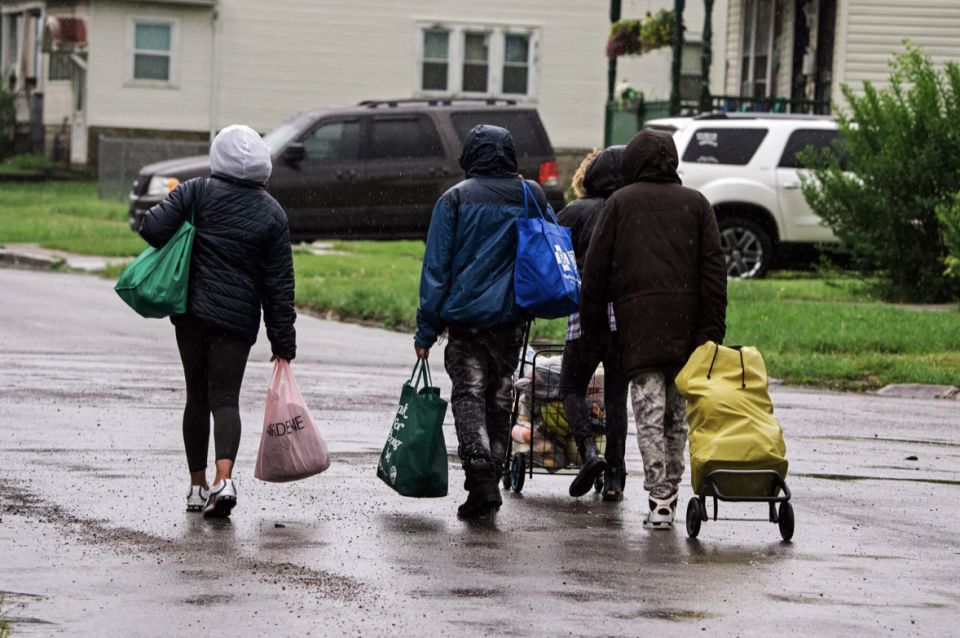News Take Action
The New York Times: "The closing of the Tops market on Buffalo's East Side has created a 'food desert'"
| Date: | May 16, 2022 |
| Share: |

By: Troy Closson | May 16, 2022
Across Buffalo’s East Side, many Black residents live in what is known as a “food desert” — an area with little access to low-cost, healthy selections. But when the Tops market opened on Jefferson Avenue in 2003, it helped fill a crucial need for the Masten Park neighborhood and surrounding areas.
The grocery store’s importance was once again apparent this weekend after a gunman unleashed a racist attack on shoppers at the store, killing 10, injuring three more and prompting the indefinite closure of a crucial community hub.
To close the gap, a food distribution center at the Resource Council of WNY building will remain open until at least May 27, local officials said at a news conference on Monday.
Located a few blocks from the massacre, at 347 E. Ferry Street, volunteers at refrigerated trucks are passing out bread, milk, eggs and other goods “so individuals do not have to travel out of their neighborhood to access fresh, quality food,” officials said.
“There was a significant line of individuals today,” ” said Mark C. Poloncarz, the Erie County executive. “We may open another site in the immediate area so that there’s sufficient locations for the public to get to. If we do open that other site, we will announce it.”
He added: “There are, of course, neighborhood stores that exist. But many of them don’t have fresh fruit and meats and vegetables.”
In Buffalo, Black residents are six times more likely than white neighbors to live in an area without a grocery store, according to a 2018 report from the Partnership for the Public Good. In interviews, many residents have feared the effects of the Tops closure may ripple for months.
“I know there are a lot of people organizing to get food,” said J Coley, a Ph.D. student and instructor in the University at Buffalo’s sociology department. “But we know eventually after the weeks go by, people will stop thinking about it. I’m just worried about how people are going to be able to access food in the long term.”
Community organizations have fanned out across the area to help. Hundreds of residents traveled to the Buffalo Community Fridge on Sunday to pick up groceries. Several food pantries are organized at churches and local organizations. And some local schools are giving out donations to those in need of meals.
The supermarket chain also said this weekend that on Monday, it would begin to provide free bus shuttle service to residents, starting Monday from 10 a.m. to 7 p.m. from Jefferson Avenue and Riley Street to stores on Elmwood Avenue, in the city center.
Law enforcement officials at the news conference did not specify when investigators would leave the area and remove police tape around the Jefferson Avenue store.
The chain said on social media on Sunday that the market will “remain closed until further notice,” but added “we are steadfast in our commitment to serving every corner of our community.”
To read the full article on The New York Times' website, click here.
Read the referenced report, 'A City Divided: A Brief History of Segregation Buffalo" here.
Photo credit: Gabriela Bhaskar/The New York Times.